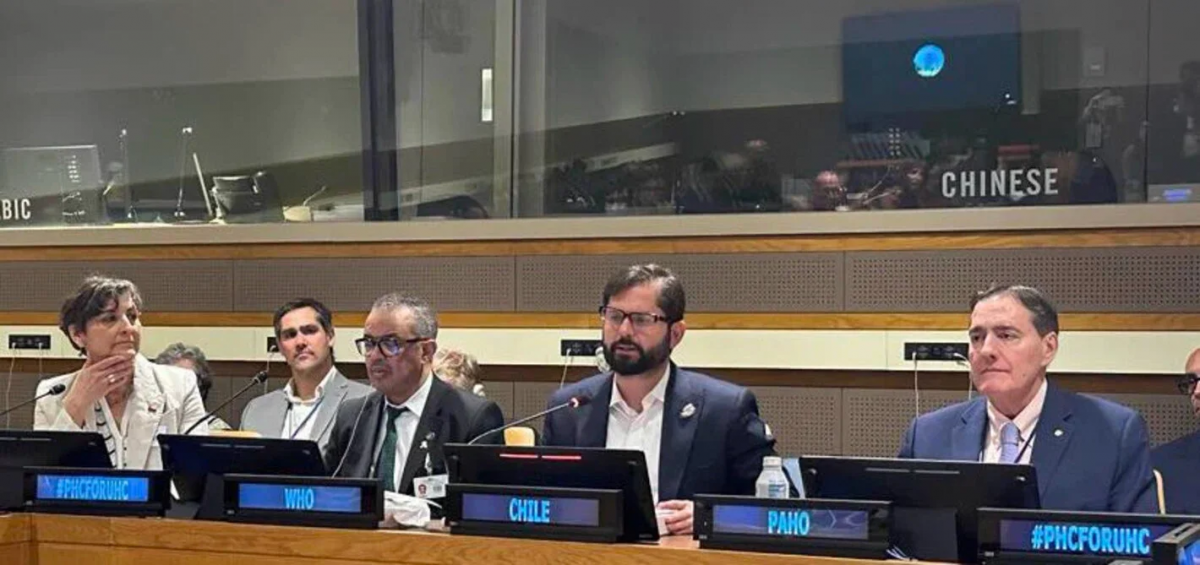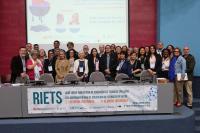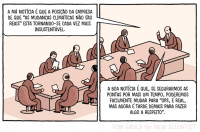Renewed focus on Primary Health Care key to resilient, inclusive health systems: PAHO Director

A fundamental change in health priorities with a renewed focus on Primary Health Care is crucial to ensure post-pandemic recovery and achieve global health targets, underscored Pan American Health Organization (PAHO) Director Dr. Jarbas Barbosa during an event on the margins of the 78th United Nations General Assembly (UNGA) today.
The event, Investing in the radical reorientation of health systems towards Primary Health Care: The best and only choice to achieve universal health coverage, organized by the Government of Chile, PAHO and the World Health Organization (WHO), convened experts to discuss ways and means to strengthen investment and urgently accelerate progress towards universal health.
“The concept of reorienting health systems towards Primary Health Care, or PHC, is not only politically and technically feasible; it has become imperative in the wake of the profound global impact of the COVID-19 pandemic,” Dr Barbosa said during the opening of the event, where he spoke alongside President Boric of Chile and WHO Director-General Dr. Tedros Adhanom Ghebreyesus.
“The pandemic was a slap in the face to all of us,” President Boric added, “because it laid bare the deep inequalities between north and south and within each country.” It is therefore crucial that recovery focuses on primary health care as a key element of wellbeing and disease prevention, the President of Chile added.
Welcoming the Political Declaration on Universal Health Coverage approved earlier in the day, WHO Director-General, Dr Tedros, highlighted that Primary Health Care “strengthens the resilience of health systems to prepare for, respond to and recover from shocks and crises” because it recognizes that “health does not start in hospitals or clinics but in homes, schools, streets and workplaces.”
To ensure the development of health care systems that are accessible to all and people-centered, Dr Barbosa urged countries to go beyond limited packages of maternal-child services at the community level and expand services to tackle communicable disease, and in particular, non-communicable disease and mental healthcare services.
New models of health financing will be key to achieve this, the PAHO Director said, including leveraging the capacity of the private sector, and investment in strengthening health workforces. Dr. Barbosa also called for the decentralization of health services to the community level, including laboratory diagnostics, cancer diagnosis and treatment and HIV/AIDS care.
For Dr. Barbosa, digital health technologies are a crucial element to break down geographical barriers, making healthcare accessible to remote and underserved communities, and empowering patients with the information needed to make informed decisions about their health.
Digital tools that facilitate contact tracing, vaccine distribution, and remote monitoring of patients also enable us to “adapt swiftly in times of crisis,” he said.
“In the Americas, we are translating political declaration to action at the national level,” the PAHO Director added. “Chile is an excellent example for all, whereby under the leadership of President Boric and Minister Aguilera, and with the support of PAHO/WHO, we have witnessed a rapid expansion in Primary Health Care.”
“I am urging all our Member States to take similar action, to invest, innovate and implement Primary Health Care.”
Other high-level officials also participated in the event, including Dr. Nísia Trindade, Minister of Health of Brazil; Dr. Ximena Aguilera Sanhueza, Minister of Health of Chile; Dr. Khaled Abdel Ghaffar, Minister of Health and Population of Egypt; Dr. Azhar Giniyatovna Giniyat, Minister of Health Care of Kazakhstan; Dr. Maria Teresa Barán, Minister of Health of Paraguay; Mr. William James Quince, Minister of State for Health, United Kingdom; and Dr. Karina Rando, Minister of Health, Republic of Uruguay.
The 78th UNGA, taking place in New York City this month, convenes three High-Level Meetings on health. These present a historic opportunity for world leaders to place health as a top priority in the political agenda as they recommit to ending tuberculosis (TB), delivering universal health coverage (UHC) and strengthening pandemic prevention preparedness, and response.
As the lead regional health agency, PAHO participated in several events to address priority health issues in the Americas.
This included a roundtable organized by Devex and MSD for Mothers on “All in: Sustainable Approaches to Improve Maternal Health and Achieve UHC through strategic Private Sector Collaborations, where the PAHO Director highlighted the important role the private sector can play in achieving Universal Health Coverage. Dr. Barbosa also attended Regionalized Vaccine Manufacturing, an event hosted by the World Economic Forum in collaboration with the World Bank Group and GAVI, where he discussed the role of the Organization in helping to establish sustainable vaccine manufacturing in the Region. At a session on Revolutionizing Global Healthcare: Equitable Access and Improved Health Outcomes for All, during the Concordia Summit, Dr. Barbosa emphasized the importance of a Primary Health Care approach.
During the Assembly, Dr. Barbosa signed a number of agreements between PAHO and key partners to advance healthcare in the Americas.



